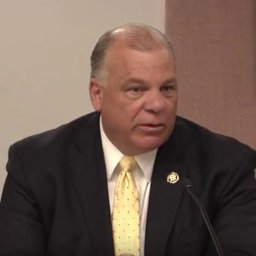Legislature to Convene Bicameral, Bipartisan Joint Committees in July; Final Action on Property Tax Relief Measures Expected by End of Year
TRENTON – Senate President Richard J. Codey and Assembly Speaker Joseph J. Roberts, Jr., today announced plans for an unprecedented special legislative session that would work throughout the summer and fall with the goal of enacting property tax reforms by the end of this year.
The announcement lays out an unparalleled framework to bring about legislative measures and corresponding action aimed at reducing the property tax burdens of New Jersey residents. It would mark the first time in state history that the Legislature will create special bicameral committees tasked with looking at the property tax problem from all angles.
“For too long property owners have been getting blitzed with taxes advancing further and further. It’s time that we not only hold the line, but push them back,” said Codey (D- Essex). “Unless we attempt to create greater efficiency and reduce spending at the local levels, we will only be chasing our tails.”
“Since New Jersey’s homeowners don’t get a vacation from high property taxes, the Legislature shouldn’t get one either,” said Roberts (D-Camden). “Solving the problem of sky-high property taxes cannot be left to one person, one party, or one half of the Legislature. Today we are launching a full-court press to make major repairs to New Jersey’s broken property tax system.”
The special legislative session process would begin in July when Governor Corzine would frame out the goals and expectations in an address to a joint session of the Legislature.
Following the Governor’s address, the Senate and Assembly both would pass joint resolutions to create four bicameral, bipartisan joint committees:
Joint Committee on School Funding. This panel would expand upon the Assembly task force that Speaker Roberts initially proposed in his recent CORE Reform Plan. This joint committee would seek to implement reforms to the current school funding formula to mitigate disparities and inequalities between urban and suburban/rural schools, among other changes;
Joint Committee on Benefits Reform. The committee would use the recommendations from the Pension and Benefits Review Task Force, convened last year by Governor Codey, as the basis for legislative proposals to end abuses of the public benefit system and control benefits costs statewide;
Joint Committee on Government Consolidation and Shared Services. This joint committee would serve as a launch pad for drafting measures to promote service sharing at all levels of government and examine potential consolidation of certain state government functions;
Joint Committee on a Citizens’ Convention and Constitutional Reform. The committee would address property tax issues that require constitutional remedies with the goal of laying the groundwork for a Citizen’s Convention that would be put to the voters on the November 2007 ballot.
The joint committees would immediately begin work on developing legislative proposals, with a deadline for completing their work by September 30. The proposals would be forwarded to the Legislature’s standing committees with the goal of achieving final legislative action by the end of the year.
Codey and Roberts said the plan was created in consultation with Governor Jon S. Corzine, who has called for both a special session and constitutional convention to tackle the state’s decades-old problem of repressively high property taxes.
The leaders noted that the measures would be crafted jointly by both the Senate and Assembly, providing insurance against legislative gridlock and increasing the session’s chances of success.
Unlike past special sessions – which historically have dissolved into political grandstanding – the Codey/Roberts plan’s bicameral and bipartisan approach would ensure careful deliberation and discussion of all ideas.
“History has shown us that most partisan legislative initiatives are rarely successful,” said Codey. “Both houses working together, side by side, will be far more efficient and more meaningful.”
“In the end, taxpayers won’t especially care whether this is called a ‘special session,’ ‘special committees,’ or ‘special process’ unless there are real results,” said Roberts. “This must be a process of meeting deadlines, not dead ends.”


